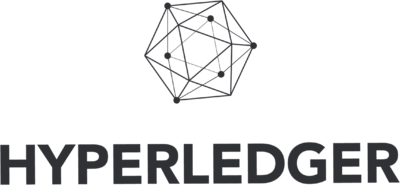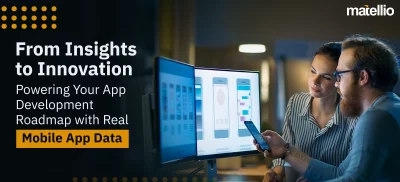
Whether you understand it or not, blockchain is coming to every sphere of our life- and fast.

Blockchain and bitcoin have been the talk of the town for a long time now. With its potential to bring in massive disruptions, the brainchild of Satoshi Nakamoto has maintained the spotlight on itself and the hype is not going to settle anytime sooner. The huge success of blockchain can be estimated from the fact that a survey by Statista predicts the market to touch the height of 2.3 billion USD by the year 2021.
Everyone from retailers, corporations to governments, is adopting blockchain to enhance their processes. In fact, courtesy to IBM’s latest innovation, it is already having a huge impact on the food you eat. Considering the popularity of Bitcoin and blockchain, multiple entrepreneurs are not partnering with blockchain app developers to figure out how to develop a blockchain app for the business.
If you too are one of these, well, we have got you covered. Here’s all the homework you need to know before finally getting in touch with a blockchain app development company. Let’s get started!!!
Blockchain Technology: In a Nutshell
Talking in layman terms, blockchain is a decentralized, transparent, immutable, and publically accessible database where digital information is stored in the form of blocks. This is paired together using hash functions. In business terms, blockchain is a peer-to-peer exchange network.
Bonus Read: Blockchain: A novice’s guide
Various Types of Blockchain Systems/ Solutions
Before beginning to develop the blockchain app, the first thing you need to do is to figure out the type of solution. You can categorize your app into one of the following types:
Types of Blockchain According to the Networks
This involves choosing from one of the two options mentioned below:
1. Permissionless Blockchain: This particular type of blockchain network makes entire information publically accessible over the computers and devices within a network. In other words, anyone on the network can initiate network interaction and verify the transaction anonymously. For e.g., Bitcoin, Ethereum.
2. Permission Blockchain: This is a closed ecosystem-based blockchain network where only authorized participants can act, based upon the roles. Transactions in these types of networks follow a specific set of rules that state the flow (for e.g., for database management, for auditing, etc.). For e.g., multichain.
These types of system aim to deliver more efficient and data-driven business models cost-effectively. They provide the blockchain apps with core functionalities including:
- Automated data synchronization
- Immutability
- Ability to deal with permissions
- Process automation
- Stringent privacy
- Security features
Types of Blockchain Networks According to the Cryptocurrency Support
Here are the categories of blockchain networks based on cryptocurrency support.
1. Cryptocurrency-based Blockchain: As the name suggests, these networks run on cryptocurrencies. Popular names in this category include:
- Wallets: Also called Cryptocurrency wallets or crypto wallet, these are secure digital wallets that hold public or private keys that one can use to send, store, or receive cryptocurrencies. They are generally used for conversions and cryptocurrency trading in a centralized, decentralized or hybrid scenario.
- Crypto Exchange (or Digital Currency Exchange DCE): Capable of accepting credit card payments, postal money orders, and other forms of payments along with cryptocurrency transfer to the wallets, these blockchain systems are used to trade cryptocurrencies or digital currencies.
- Initial Coin Offerings (ICO): Also referred to as Initial Currency Offering (ICO), it is a crowdfunding system that takes care of crypto token generation and selling.
2. Non-Cryptocurrency Based Blockchain: Independent of the crypto tokens, this blockchain app development services solutions are used for inventory management.
Blockchain App Development Platforms
Various choices for blockchain app development platforms include:

1. Ethereum
Ethereum is a decentralized platform that runs smart contracts. In other words, it facilitates applications that run seamlessly in a pre-programmed way without downtime, censorship, fraud, and third-party interference. Apps developed using Ethereum are custom built blockchain that represents a powerful global infrastructure capable of moving values and represent property ownership.
2. EOS
EOS aims at delivering smart contract capability, decentralized app hosting, and enterprise decentralized storage. Thus, it empowers apps with top-notch quality in terms of scalability which is missing in the apps developed using Ethereum and Bitcoin. It boasts of amazing capabilities like several commercial-scale DApps, inter-blockchain communication, and a well-established system of authentication and execution.

3. Multichain
An open source blockchain app development platform, Multichain is popular for accelerating the process to build and deploy blockchain apps. It helps enterprises to establish private blockchains that can be used effectively by the organizations for financial transactions. A simple and easy to use API in combination with a command-line interface of Multichain helps developers to preserve and set up the chain.

4. Hyperledger
Developed with an aim to augment the cross-industry blockchain technologies, Hyperledger is a an open source platform. It is popularly used to develop advanced blockchain solutions based on IoT, etc. Hyperledger is also a good choice for developing blockchain apps for supply chain management.
5. IOTA

IOTA is also an open-source DLT based solution that aims to facilitate swift and secure payment services between devices connected in an IoT network. While using a directed acyclic graph (DAG) technology, it offers some of the high-end and distinct capabilities like free transactions regardless of transaction value, faster confirmation time, unlimited transactions at a single instant, etc. It, thus, is considered as one of the most ideal platforms for payment system development.
What is the Blockchain App Development Process?
Step 1: Problem Identification and Goal Finalization
Something that goes without saying, isn’t it? The first step to developing an application is to clearly define the problem statement. As the name suggests, this stage refers to not only clear up the problem and the requirements in hand but also find out the most feasible solution.
With so much hype around blockchain, it might be possible that the problem you are wanting to solve can be solved without even involving blockchain. That’s why you ensure that the problem really needs the support of blockchain.
This would include steps like cost-benefit analysis, internal capabilities audit, issue identification, and risk analysis.
Step 2: Identify the Best Suited Consensus Mechanism
Being a decentralized system, blockchain needs network nodes to authenticate the transaction. This very process is known as consensus. For an instance, Bitcoin uses Proof of Work as a mechanism. While this is one of the most popular methods, you can also choose from various options like:
- Proof of stake
- Proof of elapsed time
- Byzantine fault tolerance,
- Federated
- Round Robin
- Delegated proof of stake
Once you have laid out the use cases properly, you can proceed to determine the preferred consensus mechanism.
Step 3: Identify the Platform
Now that you are well aware of the popular platforms for blockchain app development, it is the time to choose what fits your concept the best. Here are some of the factors that closely affect your choice:
1. Nature of Platform
Determine the type of platform that caters to the specific needs of your blockchain apps. It can be based on cryptocurrency or one that relies on smart tokens, or it might run on multiple crypto tokens. Making a clear image of what your app needs at the end is all critical in determining the platform and makes the blockchain app development easier.
2. Smart Contracts
Does your app need smart contracts to function? If you do not know yet, it’s time to determine the same.
A smart contract is a self-executing protocol that processes, validates, or enforces a trigger-based action on the blockchain system.
3. Consensus Protocol
Blockchain app development platforms work according to a variety of consensus protocols ranging from Proof of Work, Proof of Stake, Proof of elapsed time, Proof of Born, etc. You need to consider this option as well while choosing the platform.
4. Cryptocurrency
Whether you want to implement cryptocurrencies while opting to develop the blockchain app is also one of the factors that affect how you choose the platform.
5. Public/ Private Network
Ask yourself if you want to build a network accessible to everyone or the one that is only editable by authorized users.
Step 4: Architecture Designing
Blockchain solutions can be facilitated via cloud, in-house, or in a hybrid model. Additionally, you need to choose from various hardware and software configurations like processors, operating systems, memory, and disk size, etc.
Taking into consideration all the above-mentioned points, it is vital to ensure that entire architecture compliments the high-level requirements of the blockchain app.
Step 5: Configuring the Blockchain App
The configuration of the blockchain apps is followed by careful planning due to the presence of critical elements which if configured, would be very difficult to alter/ modify. Some of these key components include user permissions, asset issuance and reissuance mechanism, atomic exchanges, consensus, key management and structure, parameters, signatures, hand-shaking and address formats.
Step 6: API Development
While technology already includes many pre-built APIs for most of the use cases, you would still need to get in touch with an expert blockchain app development company to take your plan ahead. Some of the use cases already available are:
- Generating key pairs and addresses
- Executing audit-related functions
- Data authentication and related functions using digital signatures and hashes
- Data storage and retrieval
- Smart contract management and triggers
Step 7: Design of User-facing Application
Once you are through with the backend planning and development, it’s the time to get UI designed along with the admin console of the app as per user’s needs. Here, you need to figure out front-end programming language, servers, and external database for the blockchain app.
Step 8: POC Scaling and Problem Marking
Being into an early stage of development, applications based on blockchain should be followed by an MVP development to ensure minimum issues. In other words, scaling would be more beneficial if the MVP model of the app is used for the same. In addition, you also need to identify the performance issues, latency, crashes, storage or memory glitches.
In case of issues, it is ideal to get rid of them before taking a leap ahead.
Popular Blockchain Applications
With the practical impact on every major industry, here are some of the blockchain apps that are setting new milestones in the industry:
Entertainment Blockchain Apps
1. Kickcity: A platform dedicated to the event organizers, Kickcity lets them manage the event in a way that you receive payments for each service delivered and reward community members by sharing the events.
2. B2Expand: Pioneering in cross-gaming video games, B2Expand is based on Ethereum. It boats of being the first gaming company on Steam with a crypto economy.
3. Guts: Guts is a transparent ticketing ecosystem based on blockchain technology and aims at delivering the secure ticket system within the secondary ticket market.
4. Warranter: This app enables the users to convincingly access product information and find relevant services in case of product malfunction.
5. Blockpoint: Enabling various point-of-sale functionalities, Blockpoint aims to deliver services like payment system creation, mobile wallets, loyalty programs, gift cards, etc. at fingertips.
Kick Start Blockchain App Development with Matellio
Matellio offers next-gen leading edge Blockchain App Development Services through a time-tested quality-oriented approach to build effective blockchain apps. Having over two decades of experience in developing feature-rich applications under a wide array of verticals, Matellio serves as an ally to drive your terrific business growth as you leap the digital era. With a quality-oriented approach, we focus on every aspect of a full-fledged development lifecycle taking care of everything for you starting from ideation to the final launch to facilitate on-time and on-budget deliveries. Our expert team of professionals has implemented value-based state-of-the-art solutions that have delivered seamless performance across different devices and enabled the global clients to leverage amazing Return on Investment.
Want us to help with the estimation of your blockchain app? Well, request a quote today and get going in no time while eliminating all the blockchain implementation challenges you come across with our experts.





